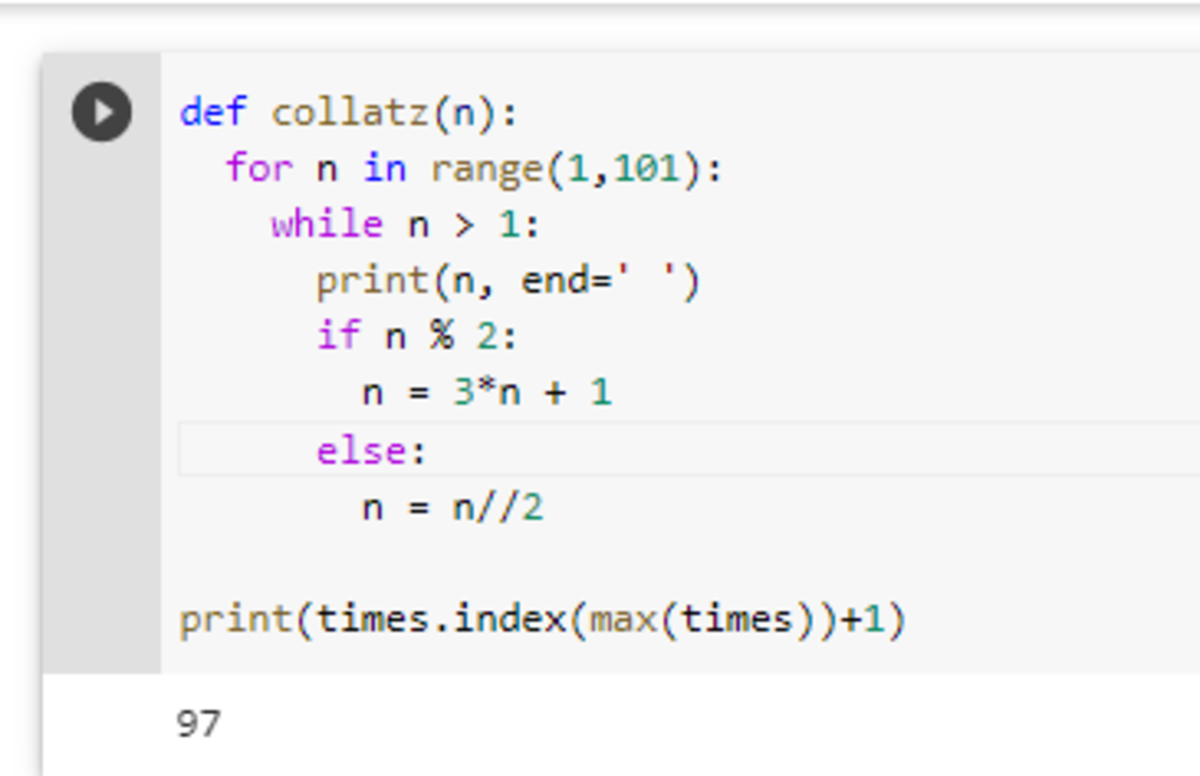Testing Collatz Conjecture
Collatz conjecture states that take any natural number , if is even divide it by to get , if is odd multiply it by and add to get . Repeat the process indefinitely, no matter what number you start with, you will always eventually reach
Proving or disproving this conjecture is still a open problem in mathematics, but anyways here's the problem :
From first natural numbers, find the number which takes most number of iterations to reach (Remember we have to stop as soon as we reach to otherwise we will end in an indefinte cycle of )
As an example for number we have :
Here it is clear that iterations are involved
The answer is 97.
This section requires Javascript.
You are seeing this because something didn't load right. We suggest you, (a) try
refreshing the page, (b) enabling javascript if it is disabled on your browser and,
finally, (c)
loading the
non-javascript version of this page
. We're sorry about the hassle.

:) fun